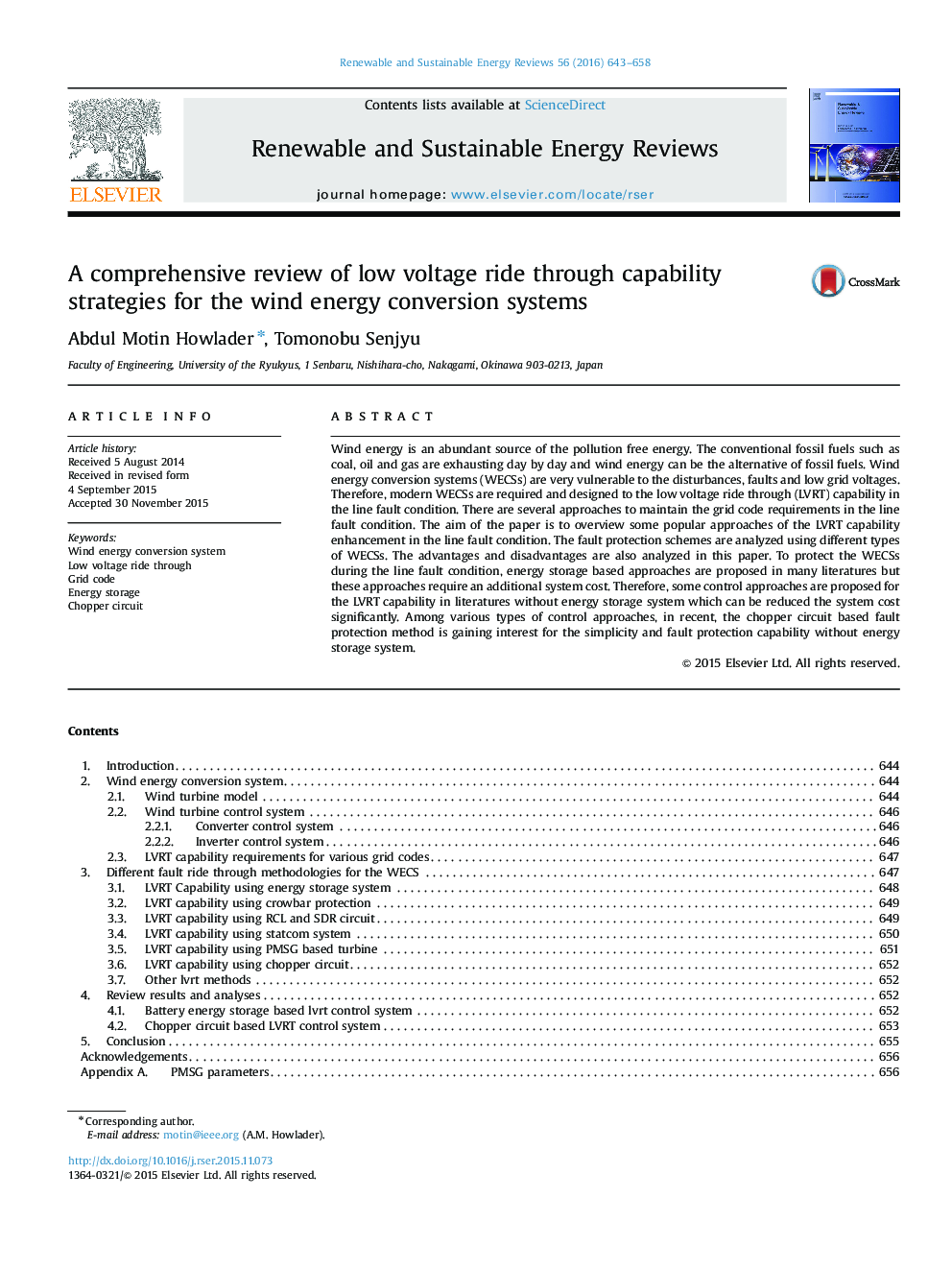| Article ID | Journal | Published Year | Pages | File Type |
|---|---|---|---|---|
| 8114830 | Renewable and Sustainable Energy Reviews | 2016 | 16 Pages |
Abstract
Wind energy is an abundant source of the pollution free energy. The conventional fossil fuels such as coal, oil and gas are exhausting day by day and wind energy can be the alternative of fossil fuels. Wind energy conversion systems (WECSs) are very vulnerable to the disturbances, faults and low grid voltages. Therefore, modern WECSs are required and designed to the low voltage ride through (LVRT) capability in the line fault condition. There are several approaches to maintain the grid code requirements in the line fault condition. The aim of the paper is to overview some popular approaches of the LVRT capability enhancement in the line fault condition. The fault protection schemes are analyzed using different types of WECSs. The advantages and disadvantages are also analyzed in this paper. To protect the WECSs during the line fault condition, energy storage based approaches are proposed in many literatures but these approaches require an additional system cost. Therefore, some control approaches are proposed for the LVRT capability in literatures without energy storage system which can be reduced the system cost significantly. Among various types of control approaches, in recent, the chopper circuit based fault protection method is gaining interest for the simplicity and fault protection capability without energy storage system.
Related Topics
Physical Sciences and Engineering
Energy
Renewable Energy, Sustainability and the Environment
Authors
Abdul Motin Howlader, Tomonobu Senjyu,
